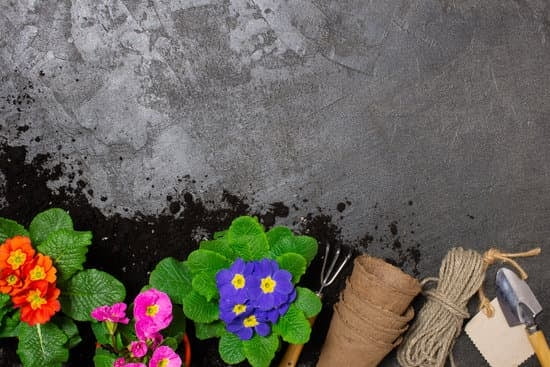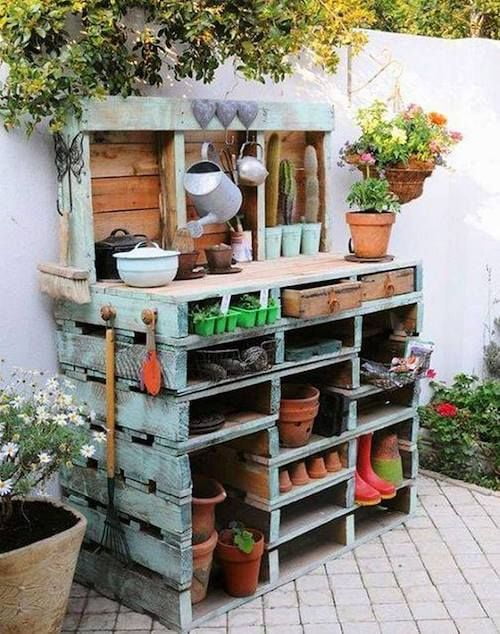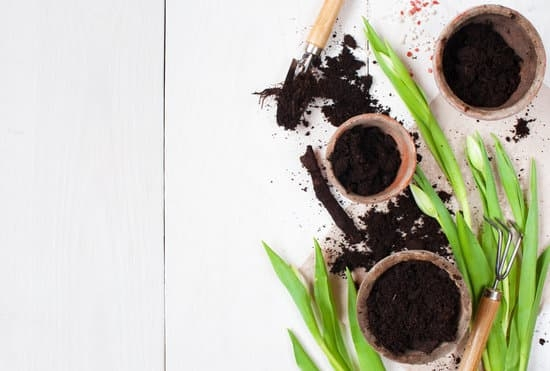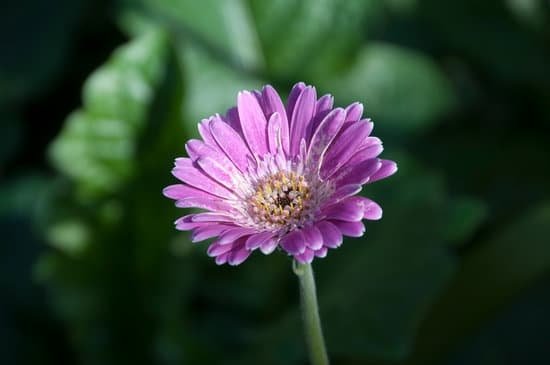Organic Container Gardening Tips
Container gardening is a great way to enjoy plants, and it’s especially perfect if you have limited space. You can grow a variety of plants in containers, including vegetables, fruits, herbs, and flowers.
One of the benefits of container gardening is that you can control the soil and nutrients that the plants are exposed to. You can also choose the size and type of container that best suits your needs.
When it comes to organic gardening, container gardening is a great way to go. You can use organic potting mix or create your own mix using organic ingredients. You can also add organic amendments to the soil to improve its quality.
Some of the best organic amendments for container gardening include compost, manure, and worm castings. You can also use organic fertilizers such as fish emulsion or seaweed extract.
When choosing plants for your container garden, be sure to choose plants that are suited to the size and type of container you are using. You also need to consider the amount of sunlight the container will receive.
Some good plants for container gardening include tomatoes, peppers, herbs, lettuce, and flowers. Be sure to experiment and try out different plants to see what works best for you.
Container gardening is a great way to enjoy plants, and it’s especially perfect if you have limited space. You can grow a variety of plants in containers, including vegetables, fruits, herbs, and flowers.
One of the benefits of container gardening is that you can control the soil and nutrients that the plants are exposed to. You can also choose the size and type of container that best suits your needs.
When it comes to organic gardening, container gardening is a great way to go. You can use organic potting mix or create your own mix using organic ingredients. You can also add organic amendments to the soil to improve its quality.
Some of the best organic amendments for container gardening include compost, manure, and worm castings. You can also use organic fertilizers such as fish emulsion or seaweed extract.
When choosing plants for your container garden, be sure to choose plants that are suited to the size and type of container you are using. You also need to consider the amount of sunlight the container will receive.
Some good plants for container gardening include tomatoes, peppers, herbs, lettuce, and flowers. Be sure to experiment and try out different plants to see what works best for you.
Organic Gardening Fertilizer Tips
Organic gardening fertilizer is a great way to provide your plants with the nutrients they need to grow and thrive. There are many different types of organic gardening fertilizer available, so it can be tricky to know which one is best for your plants. In this article, we will provide you with some tips on how to choose the right organic gardening fertilizer for your plants, as well as some tips on how to use it.
When choosing an organic gardening fertilizer, it is important to consider the type of plants you are growing. Different plants require different nutrients, so you will need to choose a fertilizer that is specifically designed for the plants you are growing. For example, if you are growing vegetables, you will need a fertilizer that contains nitrogen, phosphorus, and potassium (NPK). If you are growing flowers, you will need a fertilizer that contains phosphorus and potassium, but not nitrogen.
It is also important to consider the stage of growth your plants are in. Young plants need more nitrogen than phosphorus or potassium, while mature plants need more phosphorus and potassium than nitrogen. Most organic gardening fertilizers will list the NPK ratio on the label, so be sure to read the label before choosing a fertilizer.
Once you have chosen a fertilizer, it is important to follow the directions on the label carefully. Fertilizers should be applied sparingly, and should never be applied directly to the plants. Instead, they should be applied to the soil around the plants. Be sure to water the plants well after applying the fertilizer.
Organic gardening fertilizer is a great way to provide your plants with the nutrients they need to grow and thrive. There are many different types of organic gardening fertilizer available, so it can be tricky to know which one is best for your plants. In this article, we will provide you with some tips on how to choose the right organic gardening fertilizer for your plants, as well as some tips on how to use it.
When choosing an organic gardening fertilizer, it is important to consider the type of plants you are growing. Different plants require different nutrients, so you will need to choose a fertilizer that is specifically designed for the plants you are growing. For example, if you are growing vegetables, you will need a fertilizer that contains nitrogen, phosphorus, and potassium (NPK). If you are growing flowers, you will need a fertilizer that contains phosphorus and potassium, but not nitrogen.
It is also important to consider the stage of growth your plants are in. Young plants need more nitrogen than phosphorus or potassium, while mature plants need more phosphorus and potassium than nitrogen. Most organic gardening fertilizers will list the NPK ratio on the label, so be sure to read the label before choosing a fertilizer.
Once you have chosen a fertilizer, it is important to follow the directions on the label carefully. Fertilizers should be applied sparingly, and should never be applied directly to the plants. Instead, they should be applied to the soil around the plants. Be sure to water the plants well after applying the fertilizer.
Tips Organic Gardening
Organic gardening is the practice of growing plants without the use of synthetic fertilizers or pesticides. It’s a great way to improve your soil and help keep your plants healthy and pest-free.
One of the benefits of organic gardening is that it helps build healthy soil. By using natural methods to improve your soil’s health, you can create a foundation for healthy plants. The organic matter in your soil will help retain moisture and nutrients, which will help your plants grow strong and healthy.
Organic gardening also helps keep your plants healthy by providing them with natural pest control. Pests can be a big problem for gardeners, but organic methods can help keep them under control. For example, you can use companion planting to attract beneficial insects that will help to control pests. You can also use natural pesticides and herbicides that are less harmful to plants and the environment.
Organic gardening is a great way to improve your soil and help keep your plants healthy and pest-free. By using organic methods, you can create a foundation for healthy plants and help protect the environment.
Better Homes And Gardens Organizing Tips
From decluttering your closet to organizing your kitchen cabinets, these simple tips from Better Homes and Gardens will help you get your home in order in no time.
Declutter Your Closet
Do you have trouble finding what you’re looking for in your closet? A cluttered closet can be not only frustrating, but also damaging to your clothes. Here are a few tips to help you declutter your closet and create an organized space that’s easy to use.
– Start by removing everything from your closet and sorting it into categories: clothes, shoes, accessories, etc.
– Throw away anything that’s damaged or outdated.
– Once everything is sorted, decide what you want to keep and what you want to get rid of. Don’t be afraid to get rid of clothes that you haven’t worn in a while – if you haven’t worn it in the last year, you’re probably not going to wear it again.
– Once you’ve decided what to keep, put everything back into your closet in an organized way. Use shelves, baskets, and hooks to store your clothes and accessories, and make sure there’s enough room to hang your clothes.
Organize Your Kitchen Cabinets
If your kitchen cabinets are a mess, it can be tough to find what you’re looking for – and it can be frustrating when you can’t find a place to put your food. Here are a few tips to help you organize your kitchen cabinets:
– Start by removing everything from your cabinets and sorting it into categories: pots and pans, dishes, glasses, etc.
– Throw away anything that’s damaged or outdated.
– Once everything is sorted, decide what you want to keep and what you want to get rid of. Don’t be afraid to get rid of dishes and pots that you don’t use – if you don’t use it, you’re probably not going to use it again.
– Once you’ve decided what to keep, put everything back into your cabinets in an organized way. Use shelves and racks to store your dishes and pots and pans, and make sure there’s enough room to store your food.
These are just a few tips to help you get started on your organizing journey. For more tips and ideas, be sure to check out the Better Homes and Gardens website.
Learn Organic Vegetable Gardening Tips
Organic gardening is a great way to garden without using chemicals. It also helps the environment because you are not using any pesticides or herbicides. Here are some tips on how to get started with organic gardening.
First, you need to understand what organic gardening is. Organic gardening is the practice of gardening without using any synthetic chemicals. This means that you will be using natural methods to control pests and diseases, and to fertilize your plants.
One of the benefits of organic gardening is that it is better for the environment. When you use synthetic chemicals in your garden, the chemicals can runoff into the water supply and cause pollution. By using organic methods, you can help keep the environment healthy.
Organic gardening can also be healthier for you and your family. When you use synthetic chemicals in your garden, the chemicals can get on your skin and be absorbed into your body. By using organic methods, you can avoid this.
Organic gardening can also be cheaper than conventional gardening. When you use synthetic chemicals in your garden, you have to buy them over and over again. By using organic methods, you can use natural methods to control pests and diseases, and to fertilize your plants.
Now that you know a little bit about organic gardening, here are some tips on how to get started.
First, you need to select the right plants. Not all plants can be grown organically. You need to select plants that are resistant to pests and diseases, and that can grow in your climate.
You also need to select the right soil. Organic soils are different than conventional soils. They are made up of organic matter, such as compost or manure. You can buy organic soils or make your own.
You also need to select the right fertilizer. Organic fertilizers are made from natural ingredients, such as compost, animal manure, or seaweed. You can also make your own organic fertilizer.
Once you have selected the right plants, soil, and fertilizer, you need to create a plan for your garden. This plan should include the location of your garden, the type of plants you are growing, and the methods you are using to control pests and diseases.
Once you have your plan, you need to start preparing the soil. This can be done by adding organic matter to the soil, such as compost or manure. You can also add lime to the soil to help it retain moisture.
Once the soil is prepared, you can start planting your plants. Be sure to follow the instructions on the plant label. You should also water your plants regularly, and be sure to mulch them to retain moisture.
You also need to be sure to protect your plants from pests and diseases. There are many natural methods you can use to do this, such as using pest traps, companion planting, or using organic pesticides.
Organic gardening can be a great way to garden without using synthetic chemicals. It is better for the environment, healthier for you and your family, and cheaper than conventional gardening. By following these tips, you can get started with your own organic garden.

Welcome to my gardening blog! I am passionate about plants and enjoy sharing my knowledge and experiences with others. In this blog, I will write about everything related to gardening, from tips on how to get started to updates on my own garden projects.





